Has the Localization industry an inferiority complex?
I like football, sometimes I’m not sure why. I have bitter-sweet feelings around this sport.
I guess I don’t like the crazy spiral of paying a magnificent amount of money for players, but then I like the incredible goals they are able to score.
I also have a bitter-sweet feeling with Cristiano Ronaldo. I’m a Real Madrid fan, and sometimes I admire him and sometimes I believe he’s just a peacock. It’s impressive that he has scored 412 goals in 400 matches … it’s impressive how he trains, and quite often his ego is impressive as well.
And here is where I’m a little bit confused …. and this is what I want to cover this week in my post.
“Where’s the limit between self-confidence, and being perceived as arrogant?”
Going back to Cristiano Ronaldo, I don’t have the pleasure (I guess?) to know him; so I can not judge him first hand; though he projects this image of playing to feed his ego continuously, however, people who know him in small circles they coincide he’s generous, always supporting those with fewer resources, excellent teammate and super professional always training hard and going the extra mile.
At this point of this post, you might be wondering why this is related to Localization? Did I suddenly turn my blog into a football website? There’s a connection, bear with me …
Cristiano Ronaldo knows his strengths, and he does not have an inferiority complex when competing …. I wonder if Localization industry is the same … sometimes I believe many of us working in Localization industry we have or act (at least sometimes) as if we would have an inferiority complex. Sometimes it feels we promote ourselves as under-valued service. A company might spend several hundred thousands of euros in a campaign and then we go to spend a few hundred in translating the campaign for 20 markets. It feels as if we would be afraid of demanding what we believe is fair.
We like what we do, we are quite educated in our job with a nice combination of language and technology skills, but still, for some reason, I feel quite often we act as if we are asking for permission to sit down in a meeting room with the decision makers. Is there anything we can do to overcome this insecurity? Is there any way we can become the Cristianos Ronaldos of the Localization industry 😃?
Well, I guess it’s important to understand that our is job is to educate continuously our stakeholders and remind everyone what the G-localization industry does for all of us. Let’s have a look around us, there are “localization efforts” everywhere! The software of our smartphone, the label of the clothes we wear, the web that we use to book our holidays, the label of the toys of our kids, the instructions of the board games, the label of the shampoo we use, the video games we play :) etc etc .... we are surrounded by pieces of translations material and we need to ensure this gets noticed. How can we achieve this? Well, I guess one possibility is as Cristiano Ronaldo does in the picture … we need to show the world who does the job. Because quite often Localization is totally invisible, and that’s good in a way, as it means the users did not realize they are using a translated version.
“A good translation is somehow as proper plastic surgery; it’s much better if it goes unnoticed 😃
”
So yes, localization quite often is good to behave as plastic surgery and go unnoticed, but sometimes we need to speak up to run away from this inferior complex. We need to explain what we do, and we need to do it with the proper balance, humble but not with an inferiority complex. We need visibility. How can we do this?what can we do to speak up? A few ideas below
- Over-communicate - we need to explain as often as we humanly can what our localization team does - this can be breakfast presentations, lunch and learn sessions, webinars or a newsletter…. We should choose the communication channel that matches better our company culture. But independently the channel used, it is crucial to explain the services we offer and to share the succeed stories with the rest of the company!
If we say that we have translated over the year 3.6 million words in 19 languages and that with this coverage we can reach 3 billion people in their mother tongue ….the message we send is that we are supporting our company to be truly international! We are having a great impact in developing company global branding ! Let’s share this with the world!
- Be proactive and go to find our stakeholders - let’s be honest some people will never develop a great interest in understanding what we do, but there are many others that they’ll be genuinely interested. Last Thursday having dinner with some colleagues working in an art team one of them expressed “I always like the stories you shared with us about Localization and Culturalization” many people are interested in what we do, we need to go out there and find them. Put a graphic in your internal company web home page, print posters and put them in the fridge explaining fun facts of Localization, let’s not be shy and let’s create brochures and marketing material, even if it’s for internal use only!
- Aim to the sky - find a way to have a talk to C level people. We need to find a way to get noticed by these executives. If we manage to share with them some soundbite that will help tremendously. These soundbite might come in shape as sharing KPIs and how this can help the company to be more profitable. (Check out my post here about “Top 5 facts to promote localization”)
- Focus on the “problem” localization is fixing! Let focus on explaining “what’s in for me” for each of our stakeholders. Position what we do in Localization as a “cause”. Our Localisation service no matter how great is, it's just a collection of procedures+tools+best practices. No-one (except us) cares about how polish our glossaries are, how great is the process behind it to get updated 20 languages + in real time …. Most of the people won’t be interested in the details of how we do that! ; however if we position our services delivering a reduction in X% complain calls to our Customer Care team by using the right terms of the options of our menus … that might be perceived different. If we have less email to customer care because the boosters terms we use in the game we play are consistent … that might be perceived different …no-one cares about the processes we use to sync glossaries … but everyone cares there are not inconsistencies which mean fewer tickets for CS teams …. the “what’s in for me” approach helps on this. Position Localization a needed cause to solve problems
From time to time, when we promote these services and we talk about the excellence of our services, and how beneficial a good Localization strategy is for the company …..we will feel that our ego is sticking out, we might feel a little bit weird talking about what we do … I guess that’s fine, I guess that fighting that feeling might be the first step to stop this inferiority complex that hit mercilessly our industry … maybe we should do as Cristian Ronaldo does, work hard, deliver results and not being always too humble or afraid of explaining what we do …
Which are your thoughts? Do you agree that traditionally our industry behaves with a kind of inferiority complex? Have you ever felt we sell Localization as an under-valued service? Do you have any advice to help us to overcome this symptom? If so, please comment below, I would love to hearing your thought.
In the meantime have a splendid week!
@yolocalizo
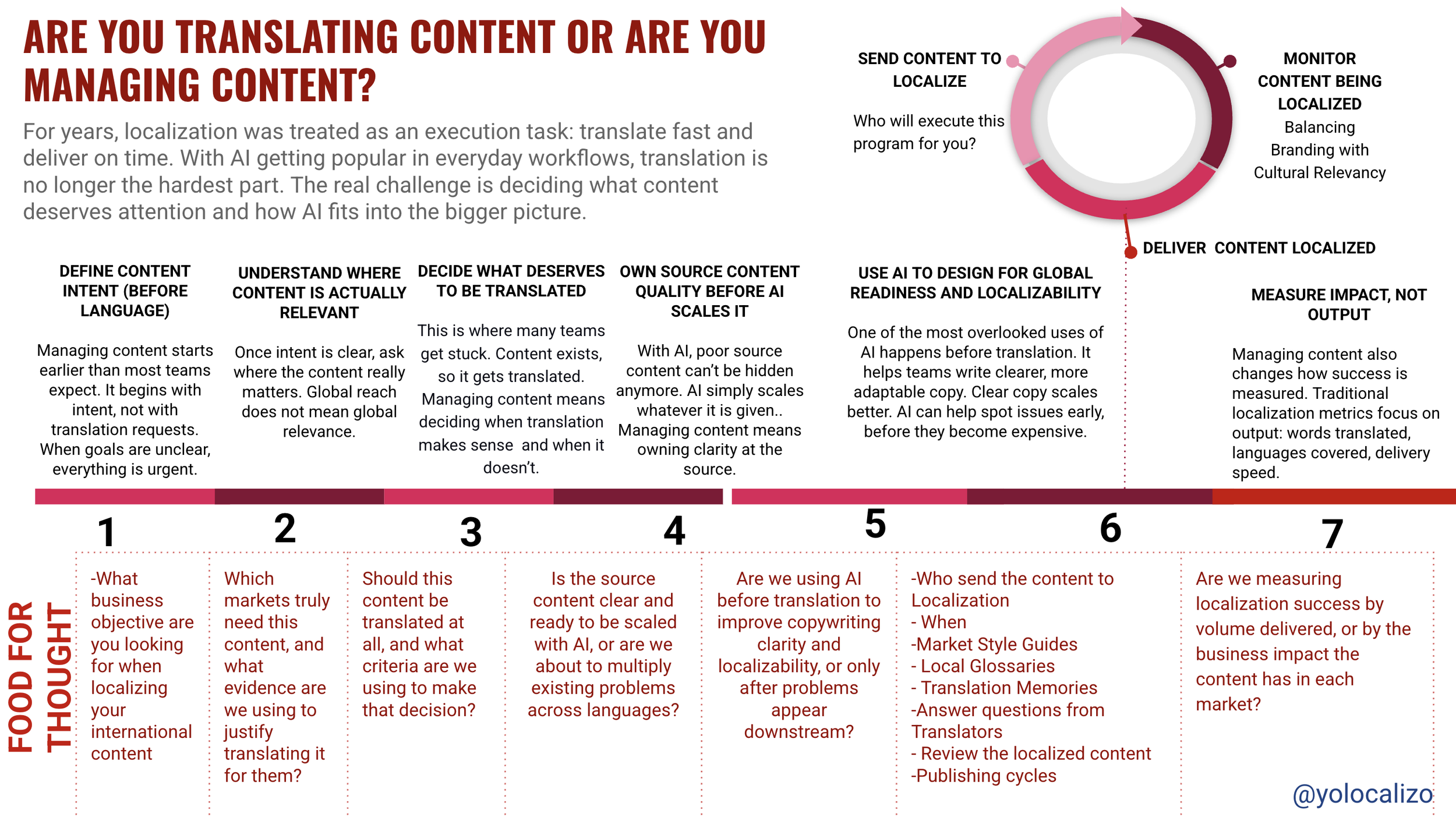

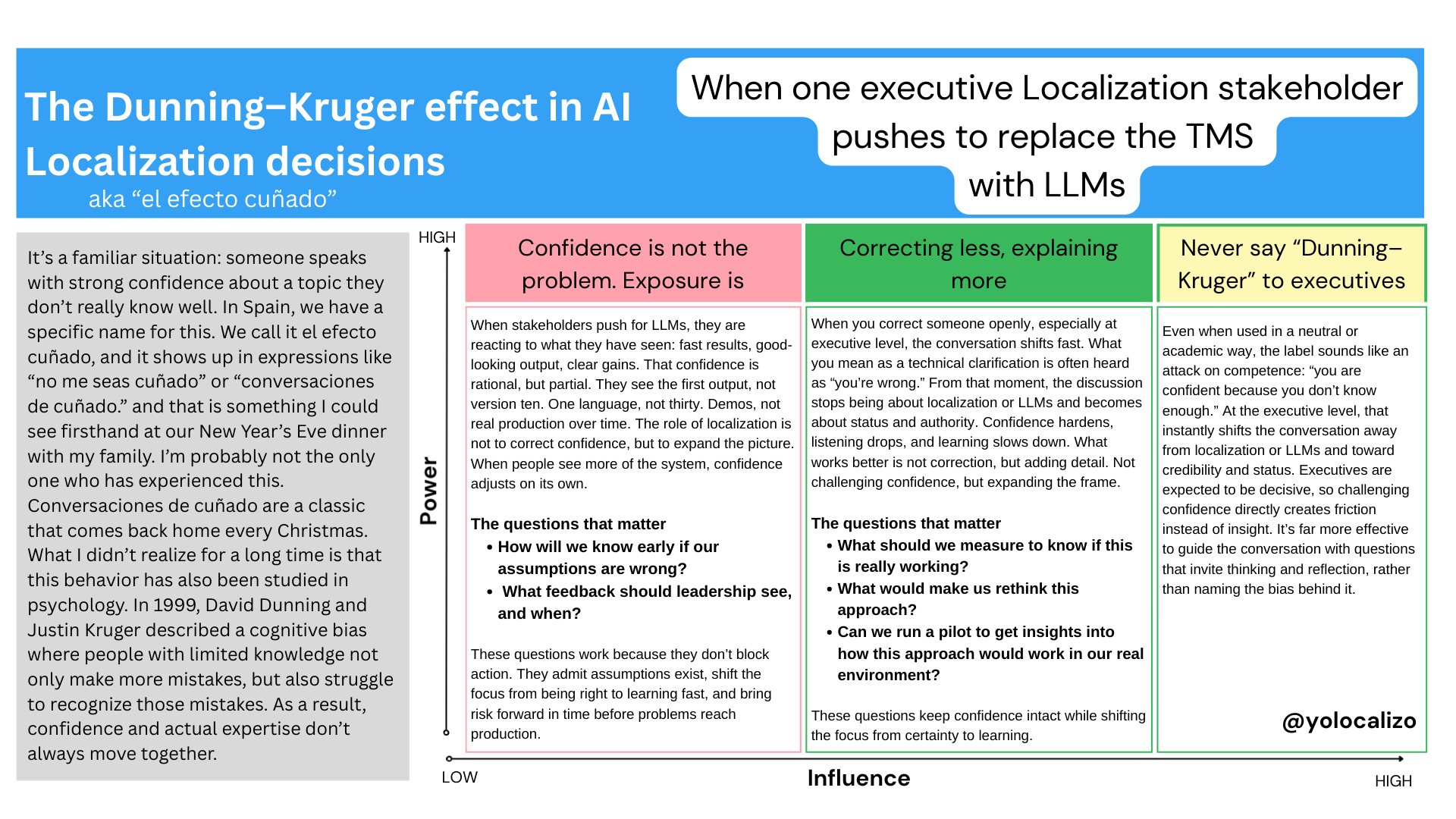


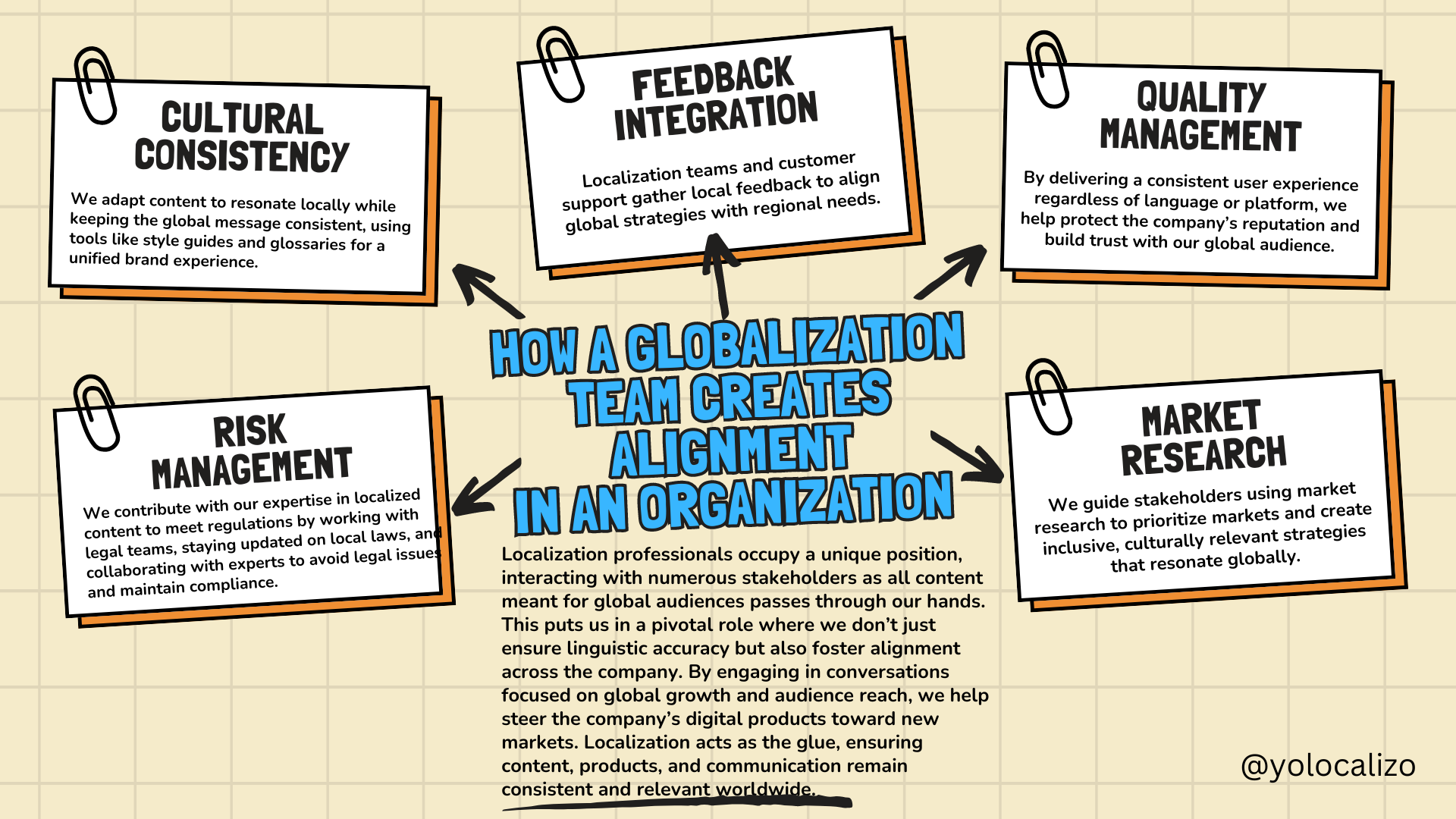
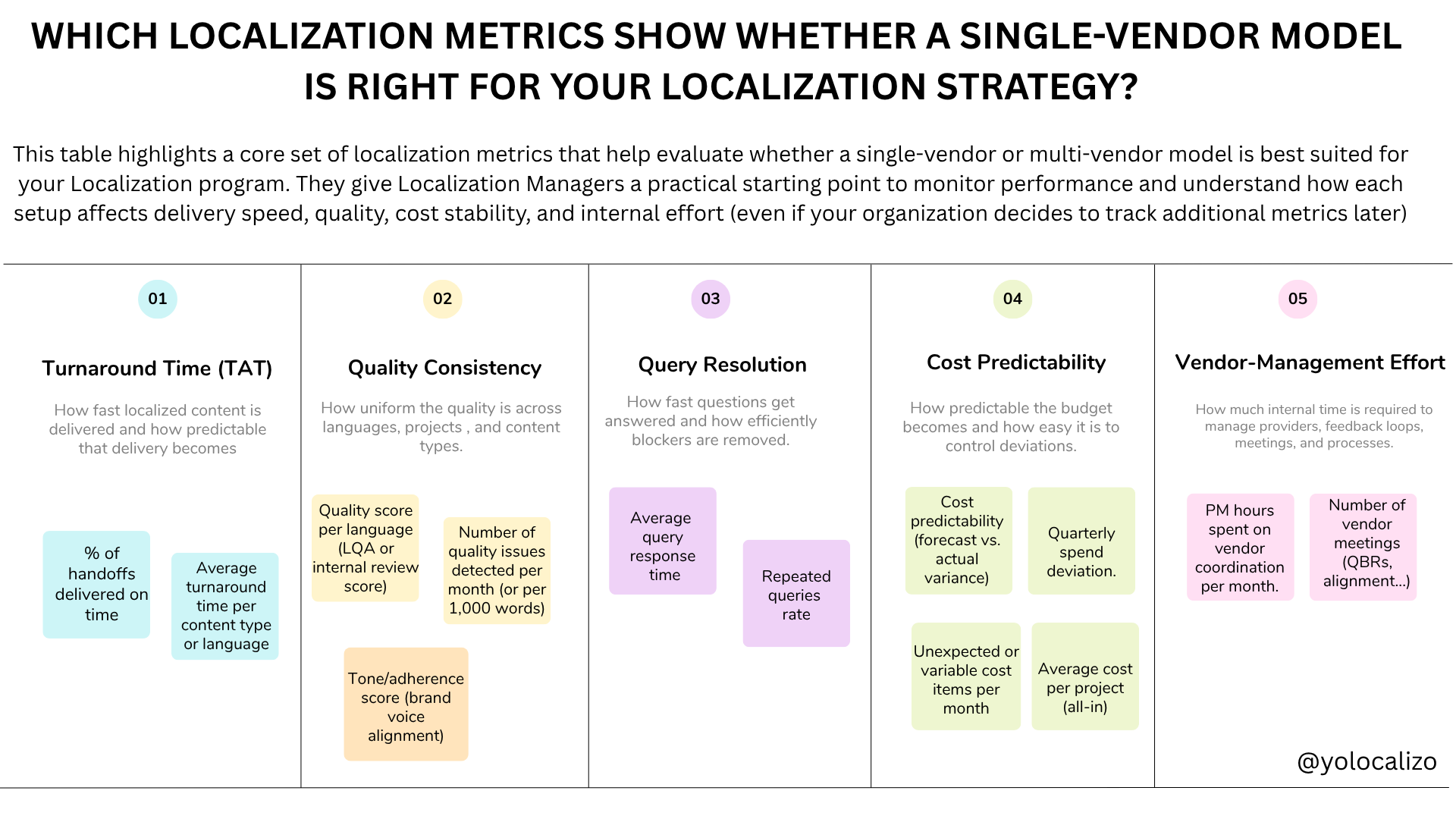



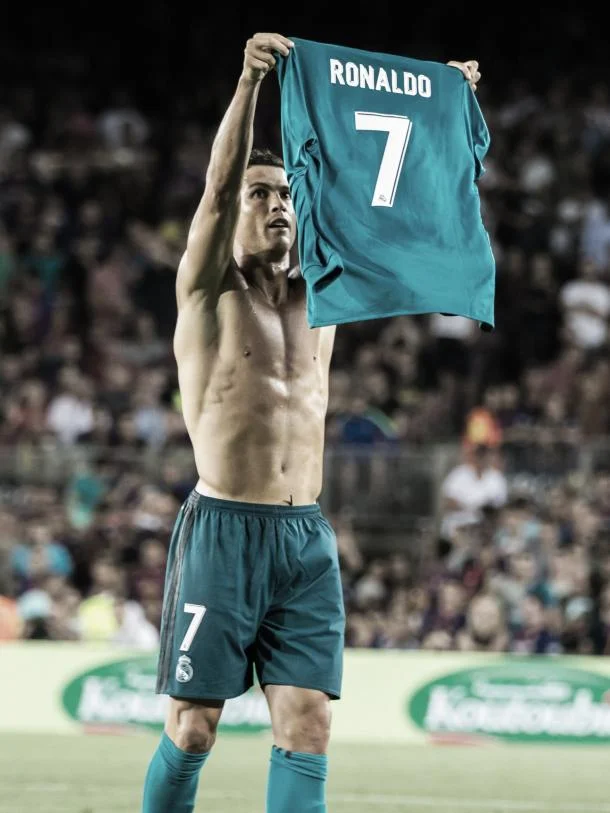



Outside the circles of localization and globalization, translation is still seen as the step to go global. As if adapting the language automatically creates a global product. As if users in new markets will suddenly feel at home just because the words are no longer in English. In reality, that’s rarely how it works. Users don’t experience products in pieces. They experience prices, payments, support, content, and expectations all at once. Adapting the language is an important start. Still, users experience the product as a whole. If only the words change, they will naturally notice the parts that didn’t.